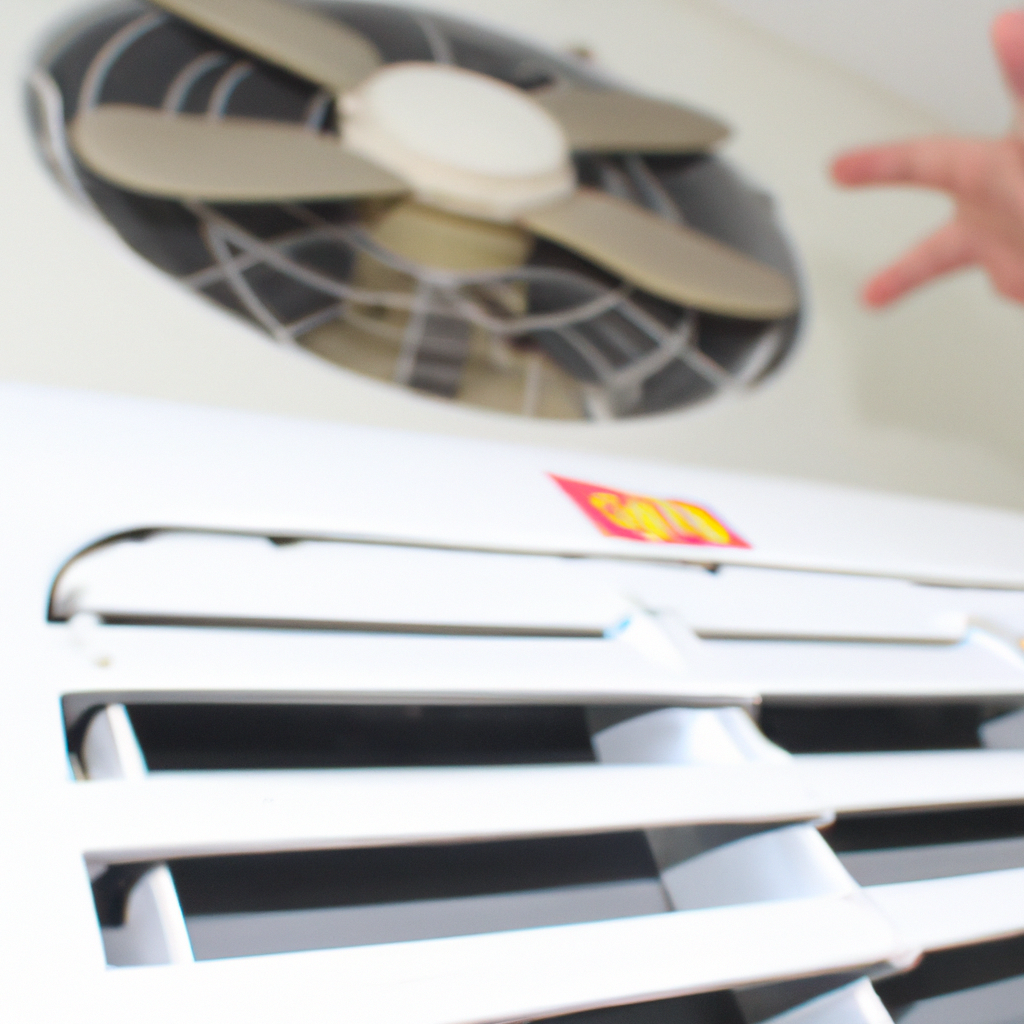Air conditioners are an essential part of modern life, allowing us to stay comfortable in our homes and workplaces even during sweltering hot summer days. But there’s one question about air conditioners that may arise in the minds of many: does an air conditioner need water to run?
No, an AC does not need water to run. However, it does need a sufficient amount of air circulating through the system in order to function properly. If the air is too humid, the AC may not be able to cool the air efficiently. Look for signs of condensation on the AC unit exterior, which could indicate that the humidity levels are too high. Additionally, check the air filter regularly to ensure it is clean and unobstructed.
A look at the mechanics behind this common appliance reveals a complex answer that is sure to be of interest to all.
The use of water by an air conditioner is a matter of both physics and engineering. The science behind the operation of an air conditioner involves the manipulation of heat energy, and water plays a key role in this process.
In addition, engineers must take into account the efficiency and cost-effectiveness when designing air conditioning systems, which can also affect the amount of water used.
In this article, we will explore how much water an air conditioner needs to run effectively and efficiently. We’ll discuss the physical principles that explain why certain types of air conditioners use more or less water than others, as well as how engineers design systems with different levels of water usage for maximum efficiency.
Finally, we’ll consider potential implications for our environment when using air conditioning systems with large amounts of water consumption. By uncovering these important facts about ACs and their relationship with water, readers will gain a deeper understanding about this essential part of modern comfort.
Definition Of An Air Conditioner
An air conditioner is a device used to regulate the temperature and humidity of an enclosed space.
It works by cooling, heating and dehumidifying the air in a room or building.
Generally, air conditioners are powered by electricity and utilize refrigeration technology to produce cool air.
Air conditioners come in a variety of models and types, ranging from window units to central systems that are connected to ductwork for cooling multiple rooms.

The main purpose of an air conditioner is to provide comfort in hot weather.
It can also be used to reduce the humidity in a space when the outside temperature is low.
By using an air conditioner, one can feel more relaxed in their home by controlling the temperature inside the house.
Additionally, it helps reduce energy bills as it consumes less electricity than other cooling methods such as fans or open windows.
Types Of Acs
The types of air conditioners available today vary from window units to central systems.
Window units are typically used for single rooms and are the most economical option.
Central systems are more complex and require professional installation.
They are suitable for larger areas, like a whole house or office building, and offer greater energy efficiency than window models.
Split-system air conditioners use two separate parts: the condenser, which sits outside the building, and an evaporator coil that is installed inside the building.
The condenser works by compressing refrigerant gas, which is then pumped through tubing to the evaporator coil located inside the building.
The refrigerant absorbs heat from indoor air and carries it outside where it is released as hot air.
This process cools the interior of your home or office while also removing humidity from the air.
In addition to split-systems, there are also portable units that can be moved from room to room as needed.
These may be powered by electricity or gas depending on their size and power output requirements.
No matter what type of air conditioner you choose, all will require regular maintenance in order to keep them running efficiently.
Knowing how ACs operate can help you better prepare for seasonal maintenance needs and get maximum performance out of your cooling system while reducing energy costs.
How Acs Operate
Air conditioners, or ACs, are devices designed to cool air by removing heat from its environment.
They operate through the use of a refrigerant, which absorbs and releases heat as it cycles through the system.
The refrigerant passes through a coil where it condenses and evaporates, thus releasing and absorbing heat.
This process is used to control the temperature of a room or space.
In order for an AC to work efficiently, however, water is not necessary.
Although water can be used as a medium in some cooling systems, such as evaporative coolers, it is not essential for standard ACs. Instead of relying on water for cooling purposes, ACs rely on motors and fans to circulate air around the unit. These components help reduce the temperature inside the space by providing airflow that absorbs and dissipates heat energy.
In addition to this process, an AC also relies on insulation to further improve its efficiency by preventing any loss of air or energy within its system. Therefore, while water can be used in certain cooling systems, it is not necessary for operation of a standard AC.
Alternatives To Water For Cooling
Air is an alternative to water for cooling an AC system. It is often used in smaller units, or for temporary applications.
Air can be used as a coolant when the compressor motor is located outside and can be exposed to fresh air. The air will absorb heat from the motor, thus cooling it down, and dissipate the heat into the atmosphere.
This method requires a fan to move air through the unit and over the motor.
An additional option is to use a refrigerant-based system instead of water or air.
Refrigerants are fluids that have a low boiling point and are highly effective at transferring heat away from components.
This method does not require fans or pumps, as the refrigerant flows freely around all components due to its low boiling point.
The main disadvantage of this approach is that it requires specialized training to install, maintain and repair these systems safely and effectively.
Refrigerants must be handled with care as they are hazardous materials and can cause significant environmental damage if not disposed of properly. Therefore, it is important to hire qualified technicians who are familiar with installing, maintaining and repairing refrigerant-based systems safely.
If done properly, using a refrigerant-based system can result in improved efficiency compared to water-cooled ACs due to their ability to transfer heat efficiently without additional fans or pumps.
Conclusion
An air conditioner is an appliance used to cool the air in a room or building. It works by circulating cool air through the use of a refrigerant and a fan.
There are many types of ACs, including central units, window units, and split systems. Each type operates differently but all rely on the same basic principles to cool the air.
In order to keep ACs running smoothly, they often require some form of water to help dissipate heat from their internal components.
This can be done with either an evaporative cooler or a closed-loop cooling system, depending on the model of AC being used.
Although there are alternatives available, water is still often seen as one of the most efficient methods for cooling an AC unit.
Just as water keeps our bodies hydrated and functioning properly, it does the same for ACs. Without it, these machines would struggle to keep their users comfortable in hot weather and risk breaking down much more quickly than usual due to overheating and strain. As such, it’s important that we take care of our air conditioners by providing them with regular cleanings and maintenance checks in order to ensure they remain functional during those long summer months.




